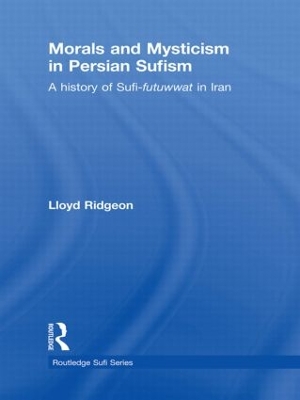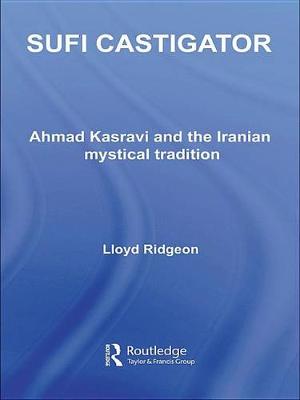Routledge Sufi
4 total works
Sufism is often understood to be the mystical dimension of Islam, and many works have focused on the nature of "mystical experiences" and the relationship between man and God. Yet Sufism was a human response to a wide range of contexts and circumstances; the fact that Sufis lived in society and interacted with the community necessitating guidance on how to behave.
This book examines the development of Persian Sufism, showing it to be a practical philosophy of the everyday rather than just a metaphysical phenomena. The author explores the ethic of futuwwat (or jawanmardi), an Iranian code of honour that emphasised loyalty, humility, generosity and bravery. Although inevitably some Sufis spiritualised this code of honour and applied it to their own relationship with God, the ethic continued to permeate Sufi behaviour on a more mundane level, typified by the strong links between Sufis and certain trades.
Drawing on field research in Iran, as well as detailed analysis of both Arabic and Persian texts and new materials that have been published in Iran in recent years, this is the first book in English to provide a history of Persian Sufi-futuwwat, As such, this book is an important contribution to the study of Persian Sufism, and to the fields of Islam, history and religion.
Sufi Castigator investigates the writings of Ahmad Kasravi, one of the foremost intellectuals in Iran. It studies his work within the context of Sufism in modern Iran and mystical Persian literature and includes translations of Kasravi's writings.
Kasravi provides a fascinating topic for those with interests in Sufism and Iranian studies as he attempted to produce a form of Iranian identity that he believed was compatible with the modern age and Iranian nationalism. His stress on reason and the de-mystification of religion caused him to repudiate Sufism and much of the Sufi literary heritage as backwards and believed it a reason for the weakness of modern Iran. Kasravi's historical observations were weak, and his writings indicate that he was working towards pre-determined conclusions. However, his works are of significance because they contributed to a major discussion in the 1930s to 1940s about the ideal image and identity that Iranians should adopt. Despite the academic weaknesses of Kasravi's works he had a profound effect on the next generation of thinkers.
Sufi Castigator is stimulating and meticulously researched book and includes two lengthy translations of Kasravi's works, Sufism and What does Hafez Say? and will appeal to scholars of middle eastern studies.
Awhad al-Din Kirmani and the Controversy of the Sufi Gaze
by Lloyd Ridgeon
Awhad al-Din Kirmani (d. 1238) was one of the greatest and most colourful Persian Sufis of the medieval period; he was celebrated in his own lifetime by a large number of like-minded followers and other Sufi masters. And yet his form of Sufism was the subject of much discussion within the Islamic world, as it elicited responses ranging from praise and commendation to reproach and contempt for his Sufi practices within a generation of his death.
This book assesses the few comments written about Kirmani by his contemporaries, and also provides a translation from his Persian hagiography, which was written in the generation after his death. The controversy centres on Kirmani's penchant for gazing at, and dancing with, beautiful young boys. This anonymous hagiography presents a series of anecdotes that portray Kirmani's "virtues". The book provides an investigation into Kirmani the individual, but the story has significance that extends much further. The controversy of his form of Sufism occurred at a crucial time in the evolution of Sufi piety and theology. The research herein situates Kirmani within this critical period, and assesses the various perspectives taken by his contemporaries and near contemporaries. Such views reveal much about the dynamics and developments of Sufism during the thirteenth and fourteenth centuries, when the Sufi orders (turuq, s. tariqa) began to emerge, and which gave individual Sufis a much more structured and ordered method of engaging in piety, and of presenting the Sufi tradition to society at large.
As the first attempt in a Western language to appreciate the significant contribution that Kirmani made to the medieval Persian Sufi tradition, this book will appeal to students and scholars of Sufi Studies, as well as those interested in Middle Eastern History.



